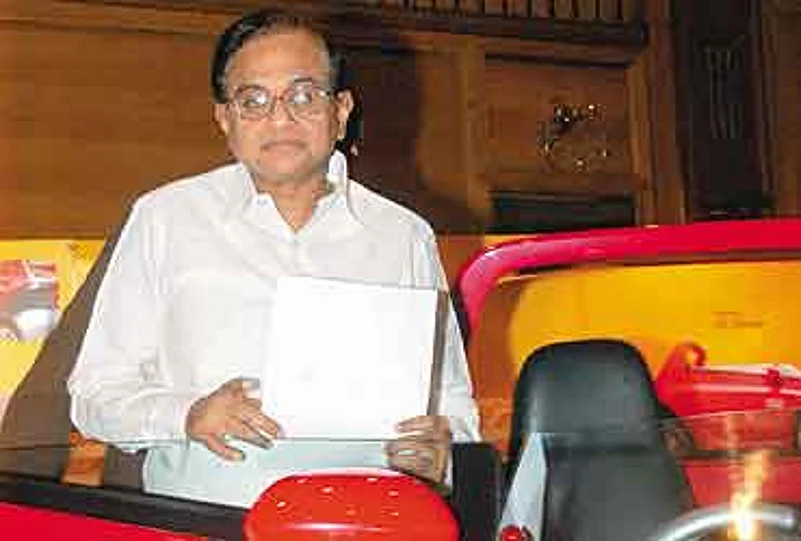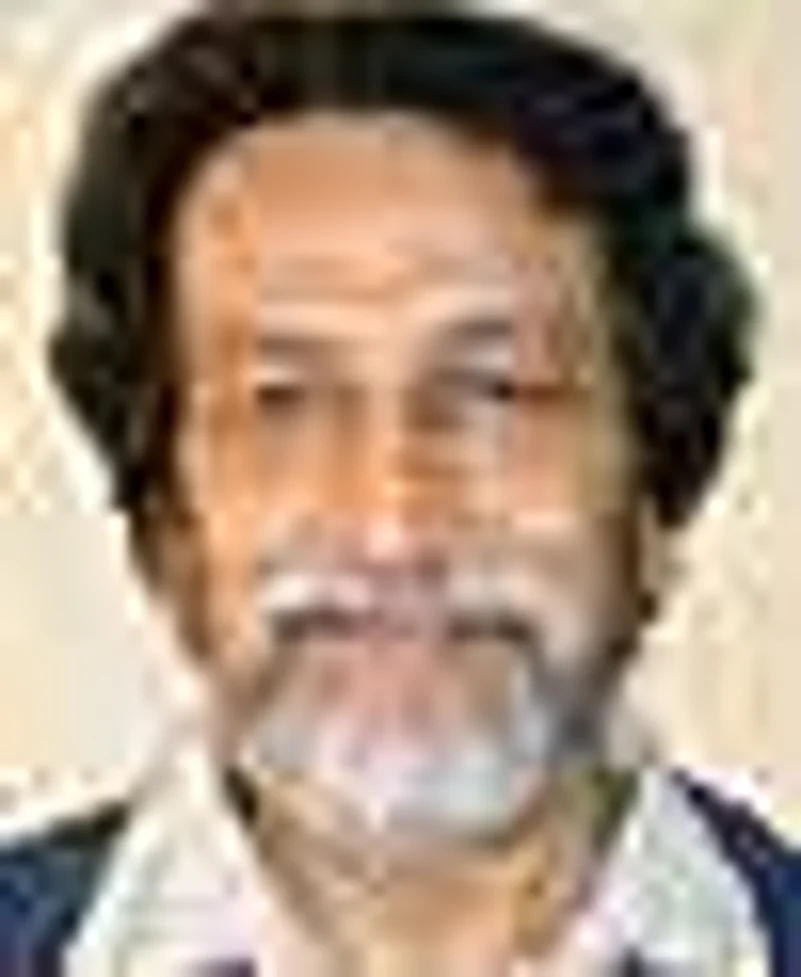
| One Year of the Economy | ||
| 2003-04 | 2004-05 | |
| WPI Inflation (April on April) | 4.57% | 5.48% |
| Forex Reserves (April on April) | $113 bn | $142 bn |
| Export Growth | 21.3% | 24.4% |
| POL Imports | 16.7% | 41.2% |
| Imports Growth (Non-POL) | 35.5% | 33.6% |
| Non-Food Credit (Annual change) | 19.9% | 31.5% |
| Tax Collections | Rs 2,63,027 cr | Rs 3,03,856 cr |
| 2003-04 (Apr-Feb) | 2004-05 (Apr-Feb) | |
| Borrowings/Liabilities Rs | Rs 1,10,470 cr | Rs 1,15,498 cr |
| Revenue Deficit | Rs 93,368 cr | Rs 92,674 cr |
| Fiscal Deficit | Rs 1,10,470 cr | Rs 1,15,498 cr |
| Industrial Growth (IIP) | 6.9% | 8.1% |
| IIP Manufacturing | 7.3% | 8.7% |
| Infrastructure | 6.2% | 4.4% |
***
Work in progress
- Direct tax reforms on course
- Textiles out of SSI box
- Allowing private airlines abroad, 74% FDI in aviation
- VAT is on amidst chaos
- Employment Guarantee Act on anvil
- Education cess comforts Sarva Shiksha Abhiyan
- Mid-day meal extended
- Right to Information Bill passed, budget accountability promised
- Bilateral initiatives with neighbours
- Inflation managed
- Centre-state fiscal relations improving
- Labour reforms unspoken, unorganised sector Bill stuck
- Disinvestment: what’s that?
- Subsidy cuts: are you crazy?
- Petro price deregulation
- Pension reforms: diluted
- Highways: work slows down
- Bill on, power progress: nil
- Investment: is a commission enough?
- Import tariffs: more flaws
- Budget management, yes; fiscal responsibility, no
- Some hundred committees!
- Agriculture, water: sounds good in the budget speech!
- Interest rates: going north
***
Voices

"It's naive to expect the UPA government to be markedly different from its predecessors in terms of policy."-- Jean Dreze, Economist

"For a departure from NDA's aggressive pursuit of neo-liberal policies, we'll need an economic regime change." -- Prabhat Patnaik, JNU Professor

"The UPA works through consensus...it has political merit but exacts a cost in terms of speed."-- Saumitra Chaudhuri, PM's Economic Council

"The highways programme faltered, the power situation is abysMal, there's no clear target setting...." -- Omkar Goswami, CERG Advisory

"There have been no major economic reforms, just some tinkering of our policies."-- Yashwant Sinha, BJP, Ex-Finance Minister
***
When the UPA government took a decision not to "celebrate" its one year in office this week—in sombre memory of the tsunami—sticking to stock-taking meetings and a minor reshuffle, it was perhaps in keeping with the spirit and the style of its functioning in the past year. Very politically correct—everybody pays education cess, three times a day? Very inclusive—two ngos in every committee. Very democratic—everybody's views count, even in the government. And very steady-boat—no "neo-liberal" reforms. In short, very boring.
Indeed, much as one tries to concentrate on the 81-point list of major cabinet decisions sent out by the PMO, there are few that strike the imagination. Take allowing Indian Oil to charter ships directly for oil imports instead of going through the shipping ministry (April 8, '05). Or, enhancement of basic pension to each unemployed and unmarried daughter of freedom fighters to Rs 1,500 (Jan 27, '05). Surely not worth exclusive cabinet attention in the 15th year of reforms in a country that's seeking to be the third largest economy (PPP terms) in 15 years?
And that's the tragedy of this government, which came in last year riding on the hopes of enlightened elites and voiceless villagers alike, albeit by sheer chance. But what a chance! A pity the UPA proceeded to devote the first year of the opportunity on, as jnu professor Prabhat Patnaik calls it, "sheer minutiae", constituent-management and getting a coherent political face.
One year is too short a time to pass judgement, but in that period the UPA did present two budgets. Isn't this enough to mark a significant departure from the past, especially with authors the likes of Manmohan Singh and P. Chidambaram? Smirks Yashwant Sinha, FM in the NDA regime: "There have been no major economic reforms, only continuation of our policies and perhaps some tinkering, like removing Press Note 18."
In contrast with the high reform expectations and fears of the Left, there has been stasis in government policy. A stasis matched by ennui in responses—experts hem and haw and scratch their heads to put together an intelligent assessment. Few go beyond pass marks. Those that are charitable find a convenient excuse in the Left's intermittent interference, forgetting that except for a couple of years during the NDA, things have always moved very slow on privatisation, labour reforms and oil price deregulation.
Says economist Jean Dreze: "It's naive to expect this government to be markedly different from its predecessors in terms of policy." Echoes Arvind Virmani, ICRIER director and former CEA: "After the crisis-driven spurt in '91, the pace of reform has been modest under every government. This has continued under the UPA." Adds Omkar Goswami of CERG Advisory: "By and large, there has been no deviation from the general path of viable reforms, except two bad taxes and a hike in the EPF rates."
Experts outside agree too. Says Arvind Panagariya, Columbia University professor: "If one focuses on the lower half of the half-full glass, the UPA has maintained the pace set by the NDA in trade reform, small-scale reservation, tax reform.That said, you can't deny that reforms have slowed down. In infrastructure, we haven't seen tangible results. And privatisation is virtually dead."
Probably the UPA's biggest failure has been in its focus areas. Core sector growth, on which hinges India's ability to gallop at 8 per cent plus, has slipped from 6.2 per cent in 2003-04 to 4.4 last fiscal. Says Goswami: "The highways programme faltered for the first six months; the power situation (mostly a state subject) has been abysmal, only the bill is through...there just doesn't seem to be clear target setting and monitoring here."
Next is oil prices.Despite crude prices shooting from $34 this time last year to $52 now, petrol prices have risen from Rs 33 to only Rs 39 (Delhi). This is not only a failure to convince the Left of a price hike but also an inability to implement the deregulation. Plus, as Sinha says, "it was insensitive of the FM to restructure the duties and shift the entire responsibility and burden of the global spiral on the petroleum ministry. This is doing long-term damage to the oil economy and consumer habits".
Can't the government then absorb the deficits in the budget? No, for the fisc is back to being an eggshell. The budget paid lipservice to the frbm Act, but the revenue deficit (RD) has actually gone up. This, says Goswami, "has three consequences. It tells the world the government isn't serious about the targets the legislature has passed. Second, it encourages states to be fiscally profligate. And third, most serious, the RD systematically eats into the government's ability to finance public infrastructure—which must lead in infrastructure building over the next 5-7 years".
This grave slippage has earned the UPA serious post-budget frowns from all over, prompting Kristin Lindow of Moody's to give a C+ rating (see box). Says V. Anantha-Nageswaran, founder-director of Libran Asset Management, Singapore: "Fiscal deficit is rising and a government that talks of the human face is pumping more money through the leaky, inefficient and corrupt government machinery. Nothing hurts the poor more."
To be fair, the government has started talking of administrative reforms; the Right to Information Bill was passed last week. Says Virmani: "I always said that given his depth of understanding and commitment, Manmohan Singh would be a PM who'd pay greater attention to long-term and difficult issues like governance reform. But there's a long way to go."
While slipping on vision, this government has managed to get some difficult ongoing reforms off the ground. Tax clean-up is the most important, especially vat and cutting industrial depreciation. There is also a fresh look at Centre-state fiscal relations, with help from the 12th Finance Commission.
Curiously, even in social sectors where the government has implemented some NCMP goals—education cess, extending the nutrition scheme, and a diluted Employment Guarantee Bill—it isn't seen to be doing enough. Dreze, author of the original draft ega, though, is hopeful that repairs can be made. "I'm persuaded that if the bill had reached Parliament in its original nac form, it would have been passed." He is now supporting a 45-day Rozgar Adhikar Yatra from May 13 to mobilise awareness.
As a result, the government is caught in a pincer. Says Patnaik: "To make the promised departures from NDA's aggressive pursuit of neo-liberal policies, we'd require an economic regime change.Not a government keen to appease globalised finance." Yet, Leftist pressure forced the UPA to promise 9.5 per cent EPF returns for three years, its most retrograde decision!
With disinvestment off the agenda, there's no hope of resources rising in the medium term. Says a senior government economist: "There's a complete lack of clarity on public sector policy, or on autonomy for the ratnas.Their hands are tied, while the government continues its flip-flop."
Says Saumitra Chaudhuri, of the PM's economic council: "The UPA has put growth and positive socio-economic distributive initiatives at the centre of its economic policy. It never was an easy task. The government is committed to work through consensus with its allies...it has political merit, but is bound to exact a cost in respect of speed."
Part of the flip-flop is also because of the government's inability to present a coherent political face in terms of policy, mainly due to Leftist and socialist pressures within the government constituents, sometimes within the Congress too.With there being no single master's voice—even the PM is seen to be economically supreme, yet politically timid—bureaucrats have adopted a wait-and-watch attitude. About a hundred committees plus the Planning Commission have prepared as many reports, many of which gather dust. "I have begun to doubt whether anybody reads anything," says a senior economist who authors many such in a year.
A prime minister who never really won an election, a party boss who's always led by default, and both of them reluctant leaders to begin with. An uncomfortable alliance that's worked for one year with an extremely uncooperative, desperate opposition, and outside supporters who "believe in keeping up the pressure". As the various jigsaw pieces settle in, the Indian economy, in great shape otherwise, silently worries about its future. Especially about a normal monsoon next month.


























